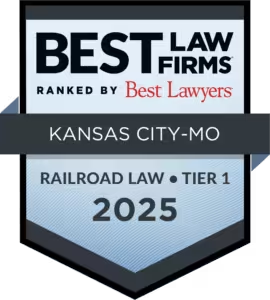
Understanding Injury and Wrongful Death Settlements for Minors in Kansas City
When a child suffers harm or tragically passes away due to another’s negligence, families are left to navigate overwhelming grief, legal confusion, and financial uncertainty. In these emotionally charged moments, seeking a legal settlement might feel like one more burden, but doing so can be essential for securing the child’s care or honoring their memory.
In Kansas City, families pursuing a personal injury or wrongful death claim on behalf of a child must follow strict court procedures. Any financial settlement involving a minor requires court approval to ensure that the child’s best interests are protected. This article explains how minor injury and wrongful death settlements work in both Kansas and Missouri and what families need to know to move forward.
Legal Importance of Court-Approved Settlements for Minors
Why Minors Cannot Sign Binding Legal Agreements
Under both Kansas and Missouri law, minors (individuals under 18) are not legally permitted to enter into binding contracts, including settlement agreements. This means that even if an insurance company agrees to compensate a child for injuries or death, the courts must validate the terms.
Legal Protections for Children in Settlement Cases
Court oversight ensures that:
- The settlement is fair and reasonable
- The child’s rights and future interests are protected
- Funds are used responsibly
Without formal approval, the settlement may be unenforceable or subject to dispute later on.
Missouri Laws for Minor Settlements
Rule 52.02 and Its Impact on Settlement Procedures
Missouri Supreme Court Rule 52.02 governs court actions involving minors and incapacitated persons. It requires court approval for any settlement involving a minor, even if litigation has not been formally filed.
Petition for Approval Process
Parents or guardians must file a Petition for Approval of Minor Settlement, which outlines:
- Details of the injury
- The proposed settlement amount
- Why the agreement is in the minor’s best interest
Guardian ad Litem’s Role
The court may appoint a Guardian ad Litem (GAL), a neutral attorney, to independently evaluate the proposed settlement. The GAL investigates the facts, reviews the settlement terms, and submits a written recommendation to the judge.
Settlement Hearing and Court Approval
A brief hearing is held, during which the judge may:
- Review the petition and supporting documents
- Ask questions of the parties or GAL
- Approve, modify, or reject the settlement
Once approved, the agreement becomes legally binding and enforceable.
Kansas Laws for Minor Injury and Wrongful Death Settlements
Applicable Statutes and Court Procedures
Kansas law also requires judicial approval for any settlement involving a minor. While the process is similar to Missouri’s, Kansas statutes such as K.S.A. § 59-3050 et seq. and K.S.A. § 59-3089 govern conservatorships and minor settlements.
Petition and Documentation Requirements
The petition must include:
- Medical records and injury documentation
- A breakdown of damages and expenses
- Terms of payment and fund distribution
Appointment of Conservator
In Kansas, if a minor is awarded more than $10,000, the court will typically require the appointment of a conservator to manage the funds until the minor turns eighteen. The conservator is responsible for filing annual reports and must manage the funds in the minor’s best interest.
Restricted Accounts and Trusts
Settlement funds may be deposited into:
- Restricted bank accounts
- Special needs trusts
- Structured settlements
These tools help ensure the money is used only for approved purposes, such as medical care, education, or essential living expenses.
Understanding Wrongful Death Cases Involving Minors
Damages Available in Kansas and Missouri
When a child dies due to negligence, the law allows surviving parents (and sometimes other family members) to pursue a wrongful death claim. Available damages may include:
- Funeral and burial expenses
- Medical bills incurred before death
- Loss of companionship and parental relationship
- Emotional pain and suffering
These claims are governed by K.S.A. §60-1901 through 60-1905 in Kansas and RSMo § 537.090 in Missouri.
Court Approval and Distribution of Funds
Wrongful death settlements also require:
- A formal court petition
- A hearing before a judge
- Approval of how the funds will be distributed among the eligible heirs
In Kansas, the court, not the family, determines how the settlement is divided. In Missouri, the court’s approval ensures fairness and finality, especially when multiple heirs are involved.
Key Considerations in Court-Approved Settlements
Fair Settlement Amounts and Medical Liens
Judges review several factors before approving a settlement:
- Severity and long-term impact of the injury
- Medical and therapeutic expenses
- Future educational or career implications
Outstanding medical liens must be addressed and paid before disbursing funds.
Use of Structured Settlements
Structured settlements are often used to provide long-term, tax-free payments. These can be tailored to cover:
- Future surgeries or therapy
- Special education needs
- Adaptive equipment or home modifications
Benefits of Structured Settlements for Minors
Structured settlements help:
- Prevent misuse of funds by guardians or family
- Ensure financial security over time
- Provide tax advantages under IRC §104(a)(2) for physical injury or wrongful death cases
Payments can be scheduled to start when the child reaches adulthood and may include college expenses, housing, and more.
Importance of Legal Representation for Families
Role of Personal Injury Trial Lawyers
Experienced attorneys help families:
- Understand their rights
- Navigate court procedures
- Ensure settlements meet all legal requirements
How Attorneys Simplify the Process
At Kendall Law Group LLC, our skilled personal injury and wrongful death trial lawyers:
- File court petitions and gather documentation
- Coordinate with Guardians ad Litem and judges
- Structure settlements responsibly
- Ensure full court approval and transparency
FAQs About Minor Injury and Wrongful Death Settlements in Kansas City
Q1: Why does a court need to approve a child’s injury settlement?
A: Minors cannot legally enter binding agreements. The court ensures the terms are fair and protects the child’s interests.
Q2: Can settlement money be used before my child turns 18?
A: Generally, no. Funds are held in restricted accounts or trusts and may only be used for court-approved purposes.
Q3: What happens if parents disagree about accepting a settlement?
A: The court may appoint a Guardian ad Litem to provide a neutral recommendation.
Q4: How long does the settlement approval process take?
A: It can take several weeks to a few months, depending on court schedules and the complexity of the case.
Q5: Are attorney fees reviewed by the court?
A: Yes. Courts ensure legal fees are reasonable and do not exploit the child’s compensation.
Q6: Is a structured settlement better than a lump sum?
A: Often, yes. Structured settlements offer long-term financial protection and reduce the risk of premature fund depletion.
Protecting Your Child’s Future Through Justice
Pursuing a minor injury or wrongful death settlement is about more than compensation—it is about securing justice, accountability, and future stability. Kansas and Missouri laws provide strong safeguards for children, but the legal path is complex and emotionally difficult. That is where experienced legal support makes all the difference.
At Kendall Law Group, our team of skilled personal injury and wrongful death trial lawyers stands beside families across Kansas City, guiding them through the court approval process with compassion and strength. We are committed to protecting your child’s future every step of the way. If your child is seriously injured or tragically killed due to negligence, you do not have to face the battle alone.
📞 Contact Kendall Law Group at (816) 531-3100 or reach out HERE






